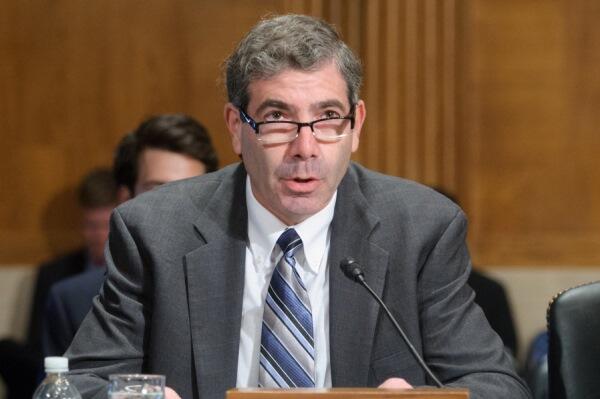
Nov. 25, 2013
Testifying on Capitol Hill
VCU expert participates in senate subcommittee hearing
Share this story
Appearing before a United States Senate subcommittee for the second time in as many months, Steven Woolf, M.D., director of the Virginia Commonwealth University Center on Society and Health and professor of family medicine and population health in the VCU School of Medicine, is making a habit of lending his expertise on health disparities and life expectancy to lawmakers in our nation’s capital.
Woolf was invited by Sen. Bernie Sanders (I-VT) and Sen. Richard Burr (R-NC), chairman and ranking member, respectively, of the Subcommittee on Primary Health and Aging, to testify last week during a hearing titled, “Dying Young: Why Your Social and Economic Status May be a Death Sentence in America.” The subcommittee is part of a Senate’s Committee on Health, Education, Labor and Pensions.
The hearing called attention to the widening gaps in life expectancy and the disparities based on social and economic status and where someone lives.
“The lower people’s income, the earlier they die and the sicker they live,” testified Woolf, who is also the co-director of the Communication Engagement Core in the VCU Center for Clinical and Translational Research.
Woolf testified that where you live can make a big difference in how long you live, even compared to nearby zip codes. Earlier this year, Woolf and his research team at the Center on Society and Health released maps that show large differences in life expectancy in the United States across neighborhoods of cities and across rural areas. The maps were commissioned by the Robert Wood Johnson Foundation.
“A few miles can make a big difference in the lifespan of Americans,” said Woolf, citing a 25-year difference in life expectancy between two zip codes in New Orleans.
During the hearing, Woolf noted that federal funding for education and other social programs has been targeted by members of Congress and that cutting these programs to save the government money could end up costing more by increasing disease rates.
“Cutting a program to save money may save nothing if it makes people sicker and thereby drives up the costs of health care,” Woolf testified. “And a sicker population means a sicker workforce, making American businesses less competitive and our military less fit for duty. Our economy and national security can’t afford this, and nor can our people.”
Calling for more research and attention on the contributing factors for disparities in life expectancy across the country, Sanders said that the stress of poverty may cause illness and result in significantly shorter life expectancy.
Others testifying at the hearing included Lisa Berkman, Ph.D., director of the Harvard Center for Population and Development Studies and professor of public policy and epidemiology at Harvard University; Nicholas Eberstadt, Ph.D., chair of political economy at the American Enterprise Institute; David Kindig, M.D., Ph.D., emeritus professor of population health sciences at the University of Wisconsin; and Michael Reisch, Ph.D., professor of social justice at University of Maryland.
Subscribe for free to the weekly VCU News email newsletter at http://newsletter.news.vcu.
Subscribe to VCU News
Subscribe to VCU News at newsletter.vcu.edu and receive a selection of stories, videos, photos, news clips and event listings in your inbox.












